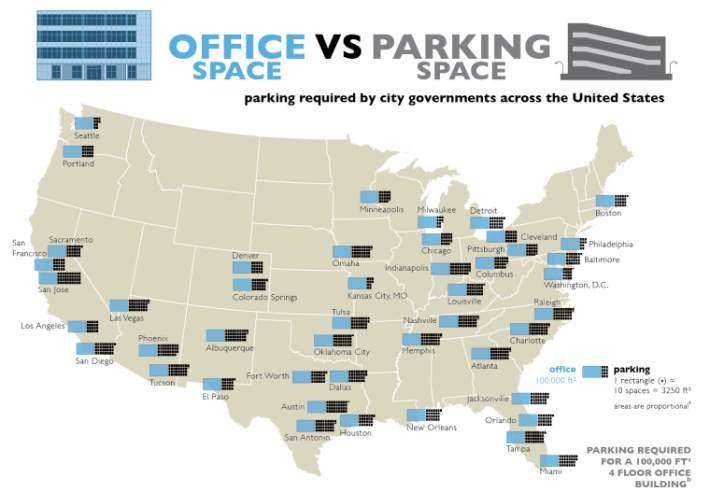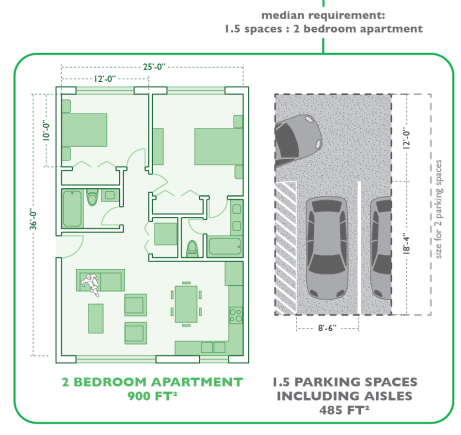
Architect Seth Goodman is on a mission to illustrate the absurdity of parking requirements. The above image, showing mandatory parking requirements for office buildings in different American cities, is one of three infographics he created to show the extent to which American cities mandate the construction of parking.
The worst offenders in the office category were San Jose, Albuquerque and Austin (though Austin recently eliminated all parking minimums downtown). Goodman notes that the majority of U.S. cities exempt their downtowns from these requirements, but he says that's not enough."In many of these cities, the relatively small footprint of these exempt areas has failed achieve the critical mass necessary to create robust transit ridership and fully-functioning pedestrian oriented communities."
Goodman has created two other infographics that explain different cities' parking requirements for residences and restaurants. The below comes from his examination of residential parking requirements. You can see that for two-bedroom apartments in U.S. cities, the median parking requirement consumes more than half as much space as the dwelling itself:
Here's how Goodman explains the pernicious impact of residential parking minimums:
Nearly every municipality in the United States requires a minimum amount of on-site parking at every residential development. The enormous cost of constructing this parking is hidden from buyers and renters alike because the costs are bundled into the price of each unit. Minimum parking requirements deprive residents of the full benefit of choosing other modes of transportation because they are compelled to pay for parking whether they use it or not. Often people who cannot afford to buy their own car are forced by city governments to have their own parking.
All that parking also consumes an enormous amount of space. Depending on the efficiency of the layout, each space requires between 300 and 400 square feet when aisles and ramps are included. Minimum parking requirements make sprawl inevitable rather than the result of market forces.
Goodman is working on two additional infographics: one will explore parking requirements at high schools, and another will look at places of worship. He tells us he gathered the information for all of these charts from city websites. Once he wraps up the five infographics, Goodman said he will move on to examining "arguments for changing off-street parking minimums rather than continuing to document their prevalence."
In the meantime, be sure to check out and share his infographics. You might learn something about your own city.






